What did the EU ever do for us? We assess some of the key pieces of legislation affecting grocery retailing over the last 50 years (plus a few urban myths).
Food allergen rules a burden but a lifesaver
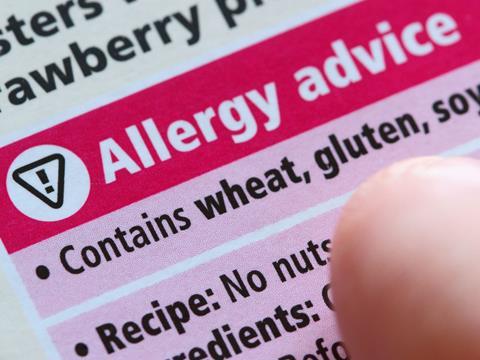
It’s hard to criticise a policy whose aim is to ensure people don’t die of food poisoning, but allergen labelling rules have still managed to generate bad blood between the Commission and businesses.
Under the 2014 Food Information for Consumers Regulation, from December 2014 it became mandatory for all back-of-pack ingredient information on all food and drink sold in member states to include allergen information. That applies not only to packaged goods but also to food sold in delis, mobile caterers and takeaways, who are obliged to provide, on request, information about all recipes and ingredients.
Cue a raft of complaints from SMEs left to deal with onerous prescriptive rules over ‘agreed standards of clarity’, including the minimum size of the label font.
Overly bureaucratic, maybe, but then the EU did vote against mandatory on-pack traffic-light labelling.
Women’s Institute jam jar jail threat turns out to be just a storm in a teacup

Health and safety is one area in which the infamous bureaucracy of the EU is characterised as being particularly overblown, and with some justification. Take, for instance, the ‘jam makers’ rule.
On the face of it, the law bans WI members and church fete enthusiasts from selling their homemade preserves in re-used jam jars. And you can imagine how that went down.
The law in question is EU Regulation 1935/2004 on materials and articles intended to come into contact with food, which prevents food receptacles being re-used unless they are specifically designed for that purpose.
Never one to pass up an opportunity to stick the knife into the EU, the Daily Mail quoted a WI spokeswoman as saying the news would “send a tremor through middle England” with members facing the threat of a fine of up to £5,000 or six months’ imprisonment for non-compliance.
The Food Standards Agency moved quickly to rain on the Mail’s parade, by issuing guidance pointing out that the regulations apply to businesses and are unlikely to affect the use of jam jars for occasional community and charity food provision. It went on to suggest the threat of prison could be averted so long as re-used jars are free from chips and cracks, have been sterilised and have well-fitting lids.
And to date, to everyone’s relief, no WI members have been hauled off to prison.
Well-meaning law on food health claims that turned into near farce

Rarely has an EU policy elicited such bewilderment as the 2006 Nutrition and Health Claims Regulation. The well-meaning law, aimed at ensuring consumers could trust the claims made for food and drink products, degenerated into near farce in 2009 as claim after claim was rejected by the European Food Safety Authority on the grounds of insufficient scientific evidence. By 2012 it had rejected 95% of them. Energy drinks and yoghurts were among the biggest casualties, with Danone moving away from making explicit claims about the health of its Activia brand, with claims linking probiotics to gut health thrown out. EFSA can justifiably claim it is upholding its role as an impartial adjudicator on risks associated with the food chain, but critics believe the onerous pharma-style approvals process remains fundamentally flawed.
Three crop rule is ‘utter madness’

The ‘greening’ element of the CAP has long been a source of frustration for many farmers who resent bureaucrats telling them what to do with their land. The latest focus of their ire is the ‘three crop rule’, which came into force on 1 January 2015, which requires farmer with 10 or more hectares of arable land to grow a minimum of three different crops each year in order to receive 30% of their direct annual payment.
Environmental groups argue such measures are vital for long-term sustainable agriculture as they help maintain soil health and biodiversity, but the NFU branded the rule “utter madness” and called for it to be scrapped at the earliest possible opportunity.
Large-scale farmers in particular believe the rules undermine their efforts to create efficiencies and simply increase costs. Those farmers opposed to the rule have found a supporter in environment secretary Liz Truss.
CAP: inefficiency and exorbitant cost, or the only way some farmers keep going?
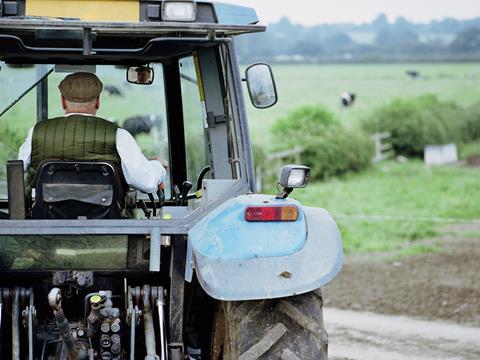
One of the mysteries of the EU referendum debate to date has been the absence of discussion of the Common Agricultural Policy, which accounts for a whopping 40% of the EU budget yet barely features in the rhetoric of either in or out campaigners.
Indeed, the question of whether payments to UK farmers would be maintained in the event of a vote to leave is one of the great unknowns surrounding Brexit.
Originally conceived as a means of giving Europe food security by incentivising production, the CAP has increasingly morphed into a scheme that rewards farmers for their stewardship of the land with a growing proportion of payments linked to rural development and environmental protection. Proponents say the CAP brings certainty and stability to farmers, while its critics (inluding some farmers) consistently bemoan its inefficiency and exorbitant cost.
In the UK, where agriculture accounts for a far smaller percentage of GDP than countries such as France and Italy, the CAP tends to be tolerated rather than loved, although it is widely acknowledged within the farming community that direct payments are the only thing keeping many farmers in business in light of global market forces that are forcing down commodity prices to unsustainable levels, most notably in dairy. And in the UK, even the minority of farmers that have called for Brexit have conceded that it would hit small family farms hard, as the removal of CAP would see income slashed by 40%.
No one would claim the CAP is perfect. On the contrary, its frequent renegotiations are the source of tensions between countries with competing priorities for their agricultural sectors.
For its part, the UK government has consistently pushed for the CAP to be simplified, including fewer on-farm inspections and an overhaul of greening requirements (see three crop rule). Late payment of subsidies is another common bugbear of the National Farmers’ Union and its members.
How the rule outlawing the sale of eggs by the dozen was broken
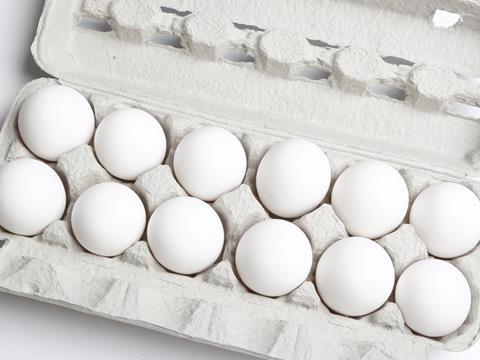
When the EU tried to ban imperial measurements the objection was largely an emotional one. But when The Grocer found out in 2010 that the EU was planning to outlaw the use of units as a description for grocery products, the objection was more rational. It meant retailers would no longer be able to sell eggs by the dozen or four hot-cross buns, for example. Instead they would have to sell them according to their weight.
Industry experts were quick to highlight the implications of the bizarre provision in the draft Food Information to Consumers Regulation, not least the cost. MEPs from all sides of the political divide joined forces to call for common sense to prevail, and, after several months of consultation, an amendment allowed individual states to nominate products that could still be sold by number.
Tobacco: public enemy number one in the EU’s fight for consumer protection

There’s no let up in the regulatory intervention from the EU. The most recent is the 2014 Tobacco Products Directive, which addresses perceived weaknesses, gaps and loopholes in previous directives, establishing maximum limits for tar and requiring health warnings on packs.
The new rules, which come into force this year, include limiting the size of a pack of cigarettes to a minimum of 20 sticks, banning packs of flavoured tobacco and outlawing packs of rolling tobacco under 30g. SKUs also have to incorporate larger health warnings on both sides of the pack – a move perceived by many pro-tobacco groups as a bid to introduce plain packaging by stealth.
The industry argues that the new regulations cost jobs and require significant investment in upgrading machinery, while c-store operators face losing a large chunk of a vital revenue stream as tobacco sales decline. E-cigarette manufacturers have also found themselves hampered by advertising restrictions, which some in the industry claim defeats the object of encouraging people to switch from cigarettes to less harmful electronic products.
But for anyone railing against the EU, it should be noted that the UK government has gone even further than the EU in banning smoking in public places, forcing cigarettes to be shut away behind or below the counter and most recently banning smoking in cars. Plain packaging, meanwhile, is set to be introduced in the UK from May 2016.
You can opt in to working 48 hours+

Depending on your point of view the Working Time Directive is either an emblem of the loathsome interference of the EU or a vital safeguard for workers against exploitative employers.
The main aim of the directive is to protect workers’ health and safety by giving them the right to work no more than 48 hours a week, as well as guaranteeing a minimum number of rest breaks and holidays and restricting excessive night work.
The UK originally opted out of the directive in 1993 before subscribing to it in 1998 under the Tony Blair administration, albeit with a concession that UK workers could opt out should they so wish.
Business groups believe the directive erodes the competitiveness of the UK in relation to countries such as the US and China, while the BRC has lobbied determinedly in favour of maintaining the 48-hour opt-out citing the flexibility it gives to workers.
Pints and pounds saved thanks to acres of tabloid coverage

Po-faced rules around the use of imperial measurements sit perfectly with the narrative of Europe riding roughshod over Britain’s heritage. In the early 2000s barely a week went by without the tabloid press claiming bureaucrats were banning sales of a great British institution – be it the pint of milk or pound of sausages – and replacing them with the oh so bland metric system.
Milk, sugar, fruit, beer and land (the acre) have all been cited as being under threat, with the media response being to make celebrities out of patriotic greengrocers and landlords prepared to stick two fingers up to the EU. In 2007, exasperated commissioners finally gave up on force-feeding metric to Brits and a compromise was struck whereby imperial can be displayed alongside metric (so long as they don’t stand out more).
Common sense comes to fishing policy with a ban on discards
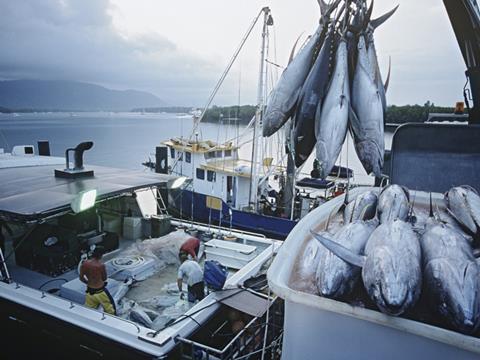
Few policies encapsulate the strengths and weaknesses of the EU as a regulator as neatly as the Common Fisheries Policy. The intentions are irrefutably worthy – to allow fishermen to compete fairly, while maintaining sustainable supplies of fish stocks. But the Commission has frequently undermined its own objectives with policies that have baffled businesses and environmentalists alike.
Chief among these is the over-zealous enforcement of rules on landing sizes and species, which has resulted in fishermen discarding tonnes of dead fish in the sea so as not to exceed quota.
Like the CAP, the CFP is frequently renegotiated and the Commission has since moved to implement a ban on discards, following campaigns from among others Hugh Fearnley-Whittingstall, replacing it with a new Landing Obligation.
The truth about the bendy banana ban and the cosmetic cucumber controversy
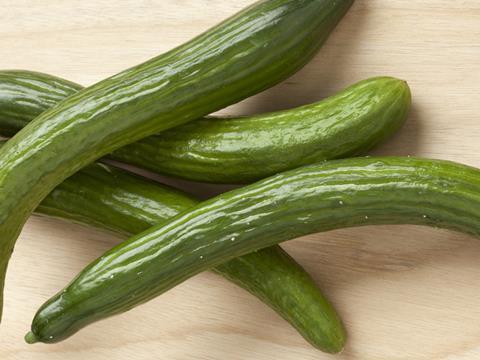
For arch Eurosceptics and the right wing tabloid press, the bendy banana and crooked cucumber represent the gold standard in nonsensical EU bureaucracy. But are these legitimate examples of bonkers EU laws or urban myths whose persistent retelling has led to them being accepted as gospel?
The truth lies somewhere in between. The EU has never actually banned bananas of any shape or angle but a Commission regulation of 1994 did lay down quality standards for bananas that included a provision they should be ‘free from deformation or abnormal curvature’. In the absence of a formal definition for ‘abnormal curvature’, the press gleefully filled the void by declaring an EU ban on ‘bendy bananas’, even though bananas with the most distorted ‘defects of shape’ could still be sold as Class II.
The case against crooked cucumbers is more watertight. It stems from a 1988 regulation stipulating that in order to be sold as Class I, a cucumber must have a curvature of no more than 10mm per 10cm of length (although perversely it was quite legal to chop a Class II cucumber in half and sell each half portion as Class I).
The rules stood for well over a decade until matters came to a head during the food price crisis of 2008 when the Commission, realising it was complicit in the throwing away of misshapen produce at a time of high food prices and food shortages, abolished most marketing rules surrounding the appearance of fruit & veg, since when it has largely been supermarkets themselves that are responsible for rejecting fruit & veg on cosmetic grounds.
The debate has recently come full circle with Asda and Morrisons now proactively marketing ‘ugly’ fruit & veg in response to growing public unease over the volume of perfectly edible produce being discarded.
The free movement of goods

A rare EU example of where Eurosceptics and Europhiles are united, the free movement of goods is the first of the EU’s four fundamental principles, and one of the main reasons why the UK signed up to the European project.
Free trade brings huge benefits to UK businesses, which can access EU markets without paying market-distorting duties and tariffs. Four of the UK’s top five food & drink export markets – Ireland, France, the Netherlands and Germany – are EU countries. And while it can be argued free trade works both ways, with EU member states enjoying unfettered access to the UK, there seems little appetite to return to a more protectionist system even among die-hard Brexiteers.
Where there’s less consensus is on the EU principle of free movement of labour, but the food sector relies heavily on it in farming, manufacture and retail.







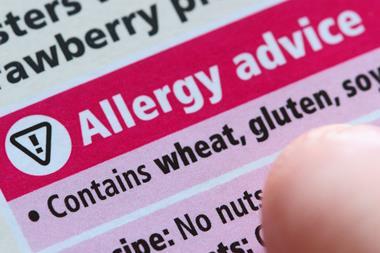

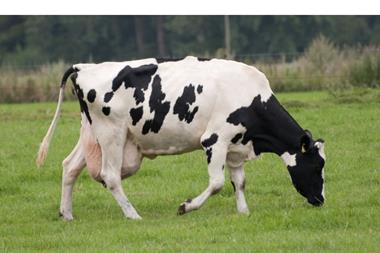
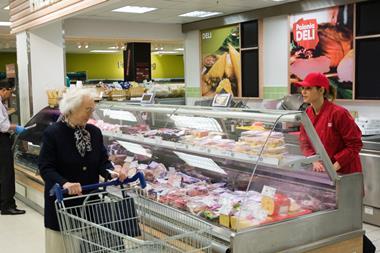
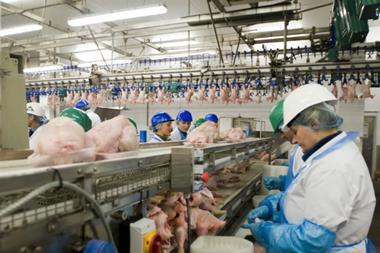







No comments yet